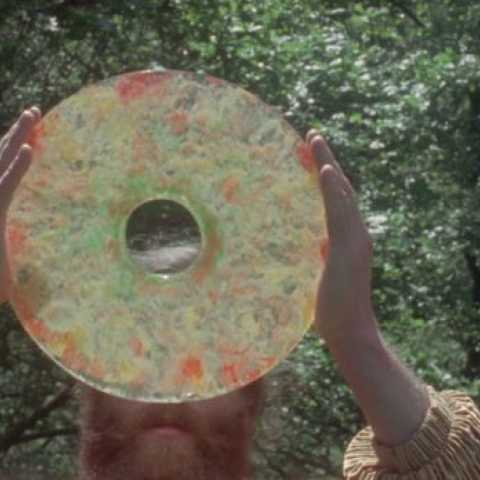
Rumblestrip brings together works by six artists that carry a sense that something is not going right, that there are signs we should be heeding. They find the differences between subsequence and consequence, a link made between things happened or happening and things yet to come. They pull together precedent and prediction, the unreachable past and an uncertain future, pointing to the signs and signals that things are about to change, there are other paths than the ones we are currently treading.
A rumble-strip is the line of ridged road paint on the side of motorways, there to alert drivers to danger, to wake the sleep-deprived and to prevent accidents. It is a warning, a noise, a difference that signals a deviation, a change in direction.
All of the artists in the show and in the associated programme make works that exist in this unsettling moment of change. Emanuel Almborg has made a parallel between two different points in history and location – documenting a youth theatre project that deals with the Rebecca Riots in Wales and the London riots of 2011 to trace patterns in repression and revolt. Nooshin Farhid, working with Paul Eachus, has produced a film propped up on a structure of another film tracking a bullet sailing through a street, searching for its own point of impact somewhere between being fired and finding its target. This scene is neither the past or the present. It’s a layer of both, an unsettling present, a simulation. James Moore describes his paintings as being “like levels from a non-existent game” they seek to picture something tangible, conjured up from our culture's obsession with these simulations and fiction.
The fear of being forgotten has given Paula Morison’s work an edginess. An archived catalogue of natural disasters and a countdown that is also counting up. Rather than a march toward the end this is a focus toward a mid-point where days still to come outnumber the days that have passed. Paul Eastwood uses video, writing and drawing as a way of conjuring things into existence. He views and frames art as a social production and cultural storytelling. He performs with and amongst the objects to act out their potential narrative meanings and functions. He is concerned with displaced fragments – of language, of artefacts and of culture - and how they take on new meanings. In her film Hill of Dreams 2016, Jessica Warboys draws from Welsh fantasy writer Arthur Machen’s book of the same name that relives his memories of rural Gwent, where Warboys was born a century later. An edited cut between ancient landscapes and contemporary objects that appear and vanish offers us a set of patterns to decipher, or a conjuring trick to contemplate.
Omens and portents rely on patterns, on our assumption of cause and effect, a desire to find order and make predictions. This forward projection is part of survival – a way of making sense of future uncertainties. We habitually look for the connections between things, or forge them into cause and effect even when the evidence points elsewhere.
